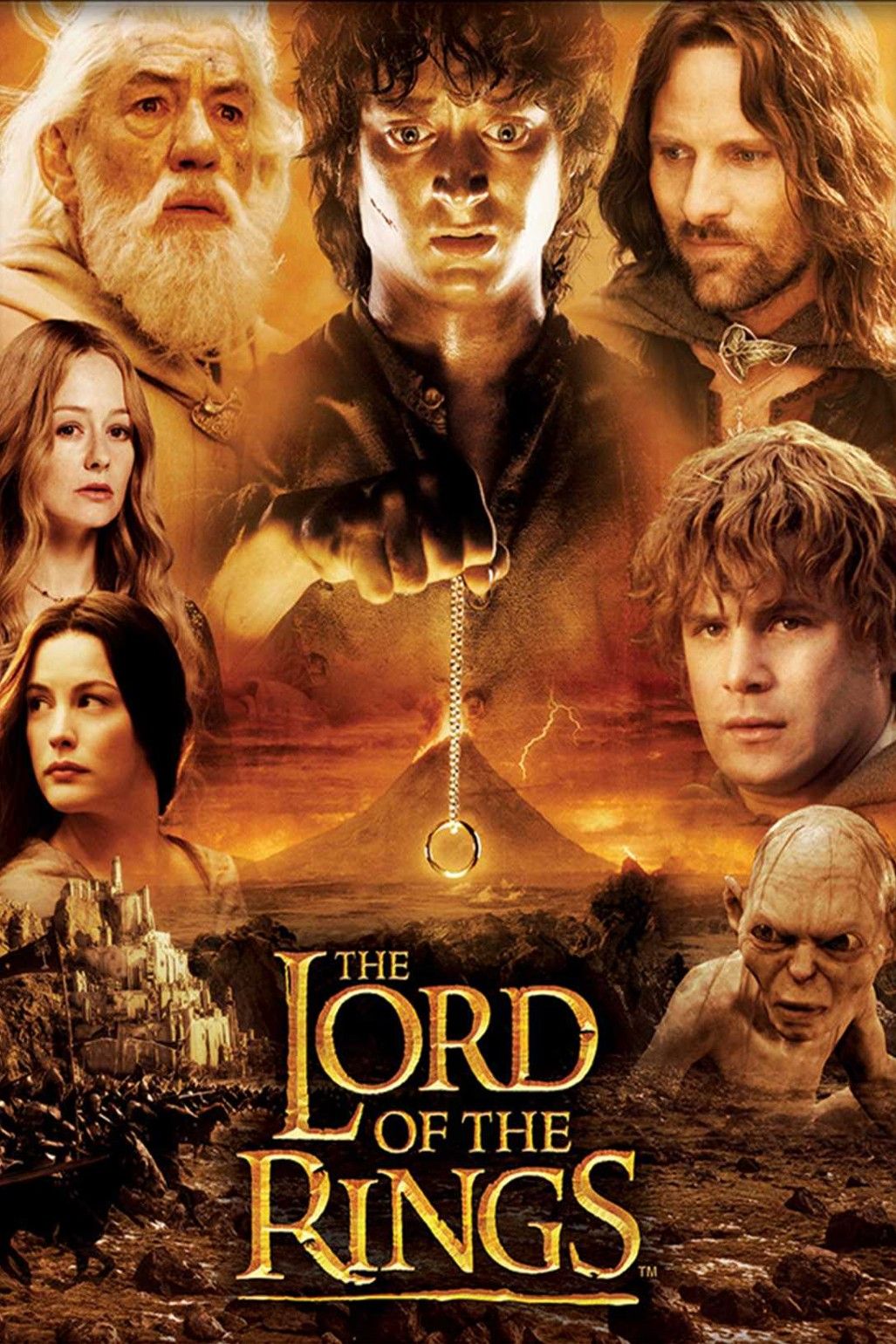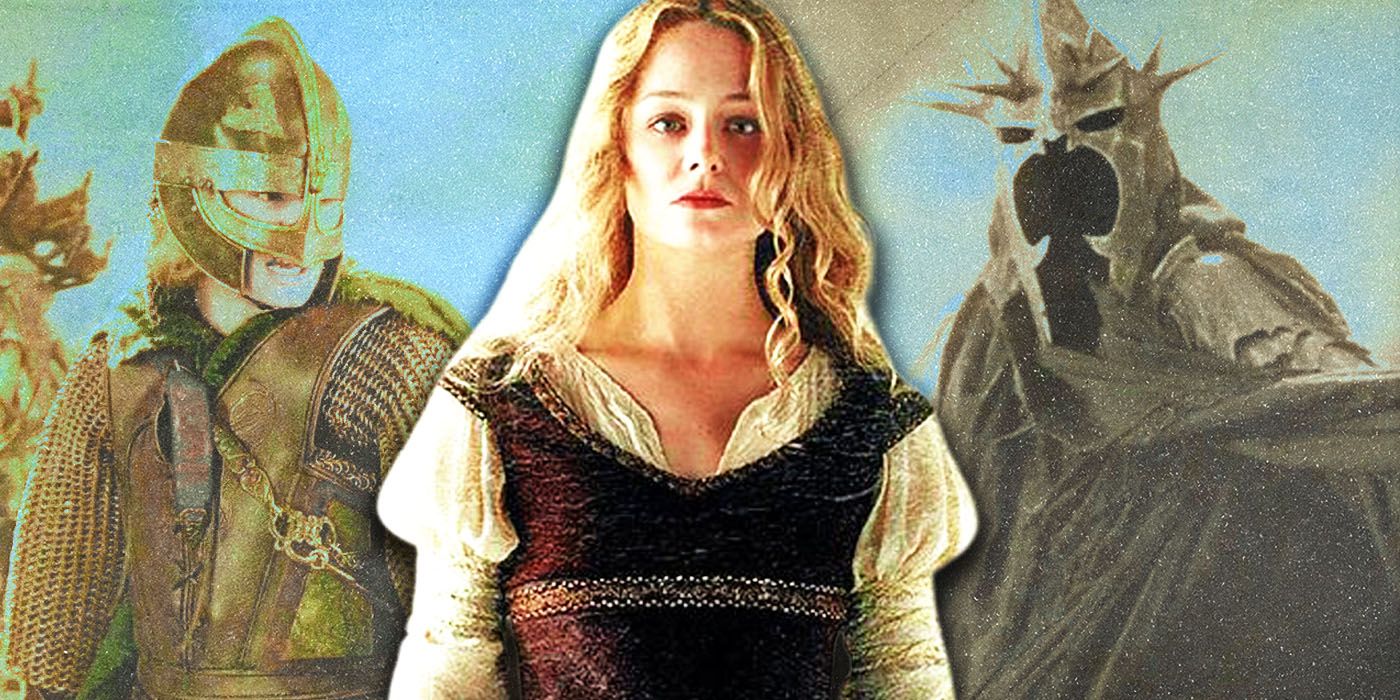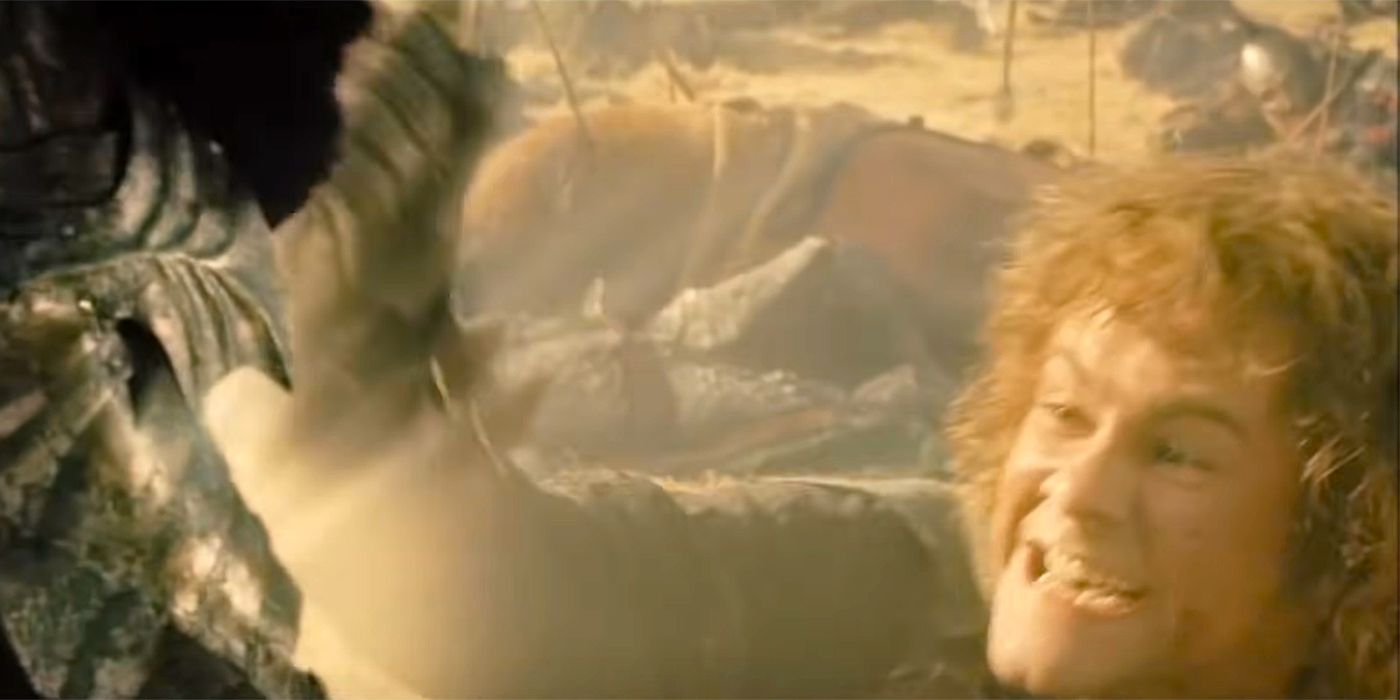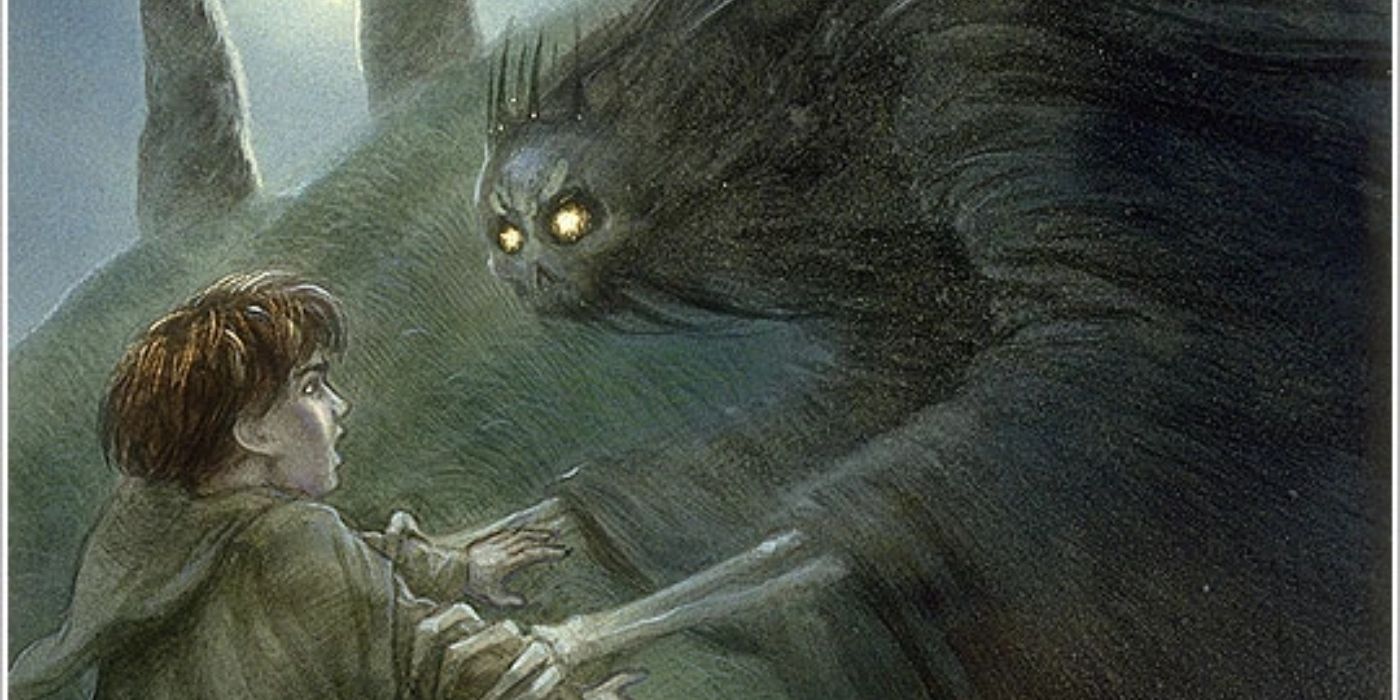Summary
- The film adaptation of The Lord of the Rings left out a key detail from the death of the Witch-king, involving a magic sword, which provides important context for fans unfamiliar with the books.
- In the book, Merry's magic dagger opens the door for Éowyn to kill the Witch-king by breaking the spell that made him near-immortal.
- Éowyn's heroic moment in killing the Witch-king was not solely due to her femininity, but rather her will and courage to defend her king, with Merry providing the assist.
Sauron may not be the greatest Dark Lord in the world of The Lord of the Rings, but by the Third Age, he was the ultimate source of darkness. Accordingly, when his power began to grow for the second time, Sauron drew to himself all of the evil things in Middle-earth -- among them, Orcs, Saruman the White and a Black Númenórean known as the Mouth of Sauron. However, his greatest servant was none other than the Witch-king of Angmar, leader of the Nazgûl.
Peter Jackson's film adaptations depicted the Witch-king as a formidable foe. However, the director left out a key detail from his death at the hands of Éowyn. In J.R.R. Tolkien's novel, The Return of the King, the Shieldmaiden of Rohan was only able to kill the Witch-king because of a magic sword, which Merry used to stab the Ringwraith at a key moment. Jackson left out that detail, which ties into a larger subplot cut from the movies to keep the already-lengthy running time in check. It doesn't harm the scene or affect Eowyn's destiny, but it does add important context for fans unfamiliar with the books.
Updated on January 25, 2024, by Robert Vaux: Eowyn's big moment is set up by details that occur much earlier in The Lord of the Rings, and tie into the history of her foe, the Witch-king of Angmar. The article has been expanded to discuss those details, as well as analyzing the differences between the original novels and Peter Jackson's celebrated movie adaptations. The formatting has been updated to reflect current CBR guidelines.
How Was Éowyn Able to Kill the Witch-king?
|
Title |
Budget |
Box Office |
Tomatometer Rating |
Metacritics Metascore |
|---|---|---|---|---|
|
The Lord of the Rings: The Return of the King |
$94,000,000 |
$1,156,000,000 |
94% |
94 |
The moment arrives near the end of The Return of the King, as the Battle of the Pelennor Fields rages. As King Theoden lies trapped under his horse, mortally wounded, the Witch-king tells his Fellbeast to "feast on his flesh." Out of nowhere, one of the Rohirrim steps up to defend the Lord of the Mark, only for the Witch-king to proclaim, "You fool. No man can kill me." Every Lord of the Rings fan knows what happens next: the two engage in a shield-splintering fight, and the warrior is nearly killed, despite beheading the wraith's mount. At the last moment, the Hobbit Merry Brandybuck stabs the Witch-king in the back of the leg. That allows the warrior to reveal herself as Theoden's niece, Éowyn, who declares, "I am no man!" before plunging her sword into the dark depths of the Witch-king's helmet.
J.R.R. Tolkien almost certainly drew inspiration for the scene from William Shakespeare's Macbeth. In the play, Macbeth seizes the throne by murder, only to see his enemies organizing against him. He visits the three witches who predicted he would become king, and receives a prophecy that "none of woman born" shall harm him. It leaves him convinced that he's invulnerable, which turns into a nasty sting when he faces his foe Macduff at the play's climax. As the text reveals, "Macduff was from his mother's womb untimely ripped" -- widely interpreted to mean that he was born via Cesarean section -- and he slays Macbeth to bring an end to his despotic rule.
With Eowyn, Tolkien puts a feminist spin on the notion, starting with a similar prophecy concerning the Witch-king which he details in The Silmarillion. 2,000 years into the Third Age, an army of Men and Elves destroy his kingdom of Angmar and send him fleeing. The King of Gondor, Earnur, tried to pursue him, only for the Elf warrior Glorfindel to warn him off with a prophecy:
"Do not pursue him! He will not return to these lands. Far off yet is his doom, and not by the hand of man shall he fall."
Earnur doesn't listen, and eventually pursues the Witch-king to his fortress in Minas Morgul. The Ringwraith kills him and apparently validates the prophecy. (Earnur's death leaves Gondor without a king until Aragorn takes the throne at the end of The Lord of the Rings.) But like Macbeth, the Witch-king conflates the phrasing of Glorfindel's words to mean everyone instead of just a single gender. That leads to Eowyn's heroics at the Battle of The Pelennor Fields in Return of the King. In both book and film, the Ringwraith boasts of his invulnerability the way Macbeth does to his foes, only for Eowyn to reveal her true nature just as Macduff does his. In the novel, it gives the monster pause: long enough for Merry to marshal his courage and come to his friend's aid.
Merry Aids Éowyn with Help from a Magic Blade
There is a little more to the story, and it involves a magic sword. However, it wasn't Éowyn's blade that was magically imbued; it was Merry's. To understand that point, Lord of the Rings fans have to turn to The Fellowship of the Ring novel. At the beginning of the book, Frodo and his three Hobbit companions encounter the legendary Tom Bombadil, a character cut from Jackson's adaptations largely for reasons of focus and time. (Though as Jackson puckishly observes in the movie's DVD commentary, there's nothing in the film to say it didn't happen: only that it didn't happen onscreen). In choosing to do so, Jackson was also forced to remove the Hobbit's near-deadly encounter with the spirits in the Barrow-downs.
And they provide considerable context. After Tom Bombadil rescued the Hobbits from the Barrow-wights, he gave them daggers that were hidden within the burial mound. Those weapons were of special significance because they originated in Westernesse, also known as the Isle of Númenor. Forged by the smiths of Arthedain, the daggers were intended for use in the war between Arnor and Angmar. As such, they were enchanted with magic capable of harming the Witch-king, which carries with it a singular irony. In Tolkien's Appendix to The Lord of the Rings, he describes the Barrow-wights as "evil spirits out of Angmar," which makes them servants of the Witch-king. They were sent to keep the local lands from being repopulated -- they were once held by the Nazgul's foes -- and perhaps to act as his eyes and ears in the region as well. (It's possible -- though Tolkien never states this -- that they were awakened from their slumber by the rise of Sauron and the Witch-king's return, which made them more dangerous to the Hobbits than they might have been earlier.) It would make sense, then, that the barrows contained weapons capable of killing him: kept safe from prying eyes and guarded by his minions to prevent potential enemies from finding them.The Hobbits recover them during their adventure with Tom Bombadil, which pays off when Merry stabs the Witch-king at Pelennor Fields.
Éowyn's Battle With the Witch-King Differed in the Book
In Jackson's films, the Hobbits' daggers were of no real significance because they didn't come from Tom Bombadil or the Barrow-downs. But in Tolkien's book, the magic weapon made a huge difference. So, when Merry stabbed the Witch-king in the source material, he didn't merely distract the Lord of the Nazgûl. Instead, he dealt a great blow by breaking the spell that made the Witch-king near-immortal. To wit: Merry's blade broke "the spell that knit [the Witch-king's] unseen sinews to his will." Tolkien even comments on whoever forged the weapon, and noted that they would be glad to know of its final fate against the very enemy it was designed to slay.
Essentially, Merry's magic dagger opened the door for Éowyn to kill the Witch-king. That, however, doesn't diminish her big moment. It means that it wasn't her femininity that permitted her to kill the Witch-king; it was her will. Anyone could have conceivably killed the Nazgûl after Merry weakened him, just as anyone could have conceivably killed Macbeth. The respective prophecies don't so much limit who can perform the deed as identify some aspect of the person who will, then disguise it beneath a rhetorical flourish. Only Éowyn had the courage to defend her king against the Nazgul, standing where everyone else had fled or been killed. Merry can be credited with the assist, but it was Eowyn's day to save just as Glorfindel predicted. The sword from the Barrow-wights opened the door. She was the one to step through it.
The Lord of the Rings trilogy is currently streaming on Max.

The Lord of the Rings
The Lord of the Rings is a series of epic fantasy adventure films and television series based on J. R. R. Tolkien's novels. The films follow the adventures of humans, elves, dwarves, hobbits and more in Middle-earth.
- Created by
- J.R.R. Tolkien
- First Film
- The Lord of the Rings: Fellowship of the Ring
- Latest Film
- The Hobbit: The Battle of the Five Armies
- Upcoming Films
- The Lord of The Rings: The War of The Rohirrim
- First TV Show
- The Lord of the Rings The Rings of Power
- Latest TV Show
- The Lord of the Rings The Rings of Power
- First Episode Air Date
- September 1, 2022
- Cast
- Elijah Wood , Viggo Mortensen , Orlando Bloom , Sean Astin , Billy Boyd , Dominic Monaghan , Sean Bean , Ian McKellen , Andy Serkis , Hugo Weaving , Liv Tyler , Miranda Otto , Cate Blanchett , John Rhys-Davies , Martin Freeman , Morfydd Clark , Ismael Cruz Cordova , Charlie Vickers , Richard Armitage
- Character(s)
- Gollum , Sauron



